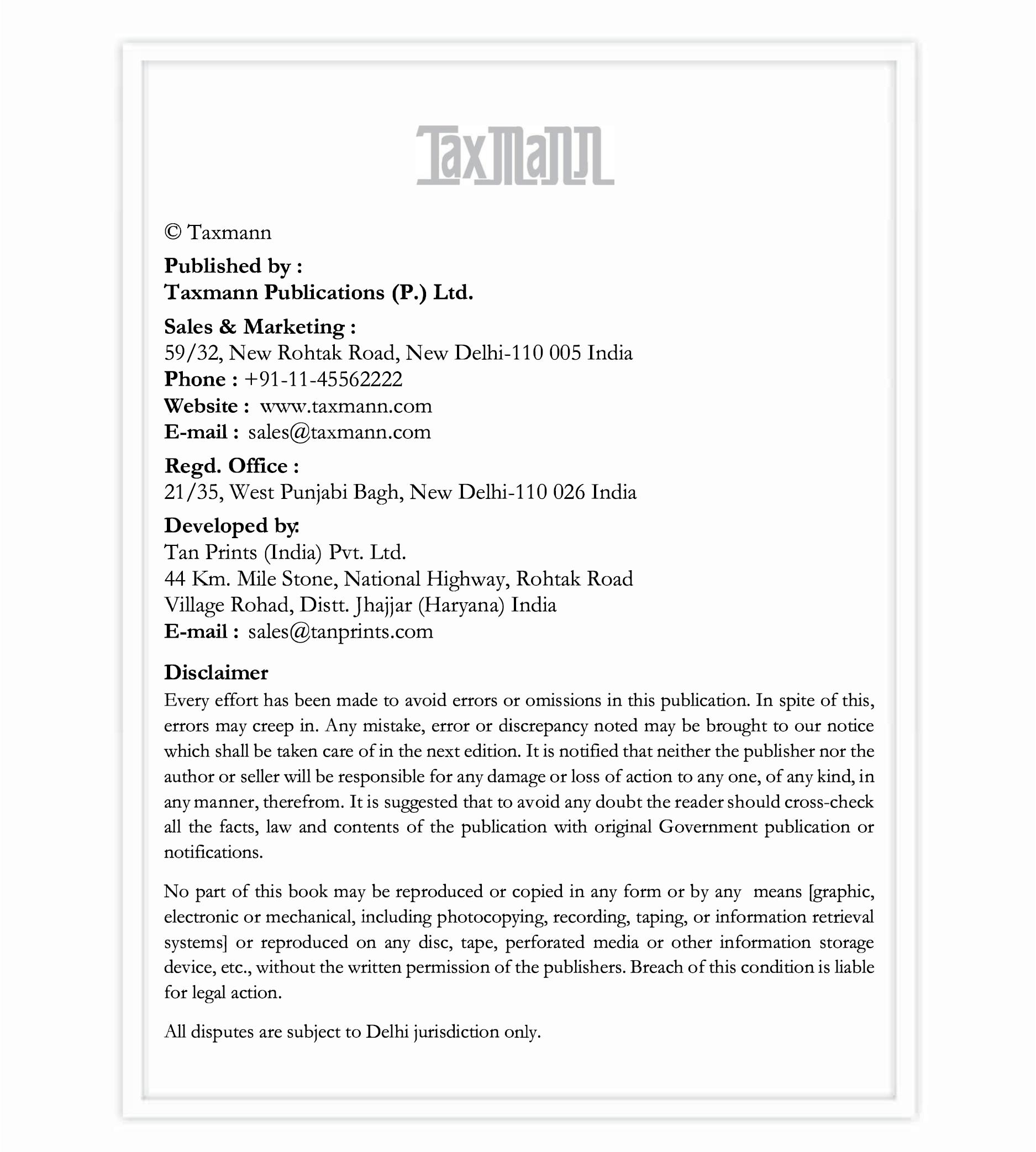




Reconciling the DPDP Act, 2023 & the Right to Information Act, 2005


Reconciling the DPDP Act, 2023 & the Right to Information Act, 2005

In modern democratic governance, two foundational principles stand in perpetual tension: the citizen’s right to access information about the State, and the individual’s right to privacy. India institutionalised the former through the Right to Information Act, 2005 (RTI Act), which transformed civic engagement by guaranteeing unprecedented access to governmental records. Twelve years later, the Supreme Court’s landmark decision in K.S. Puttaswamy v. Union of India [2017] 88 taxmann.com 176. recognised the right to privacy as a fundamental right intrinsic to dignity, autonomy, and personal liberty. This constitutional affirmation triggered India’s legislative journey toward a comprehensive privacy regime, culminating in the Digital Personal Data Protection Act, 2023 (DPDP Act).
However, while the DPDP Act was envisioned as a rights-protective legal framework, it also reached back to reshape the structure of transparency, amending Section 8(1)(j) of the RTI Act through Section 44(3) of the new law. This amendment, seemingly technical, has fundamentally altered the process of balancing privacy and public interest. The result is a statutory collision: two equally important rights derived from the Constitution now appear to undermine each other, not through their inherent content, but through the manner in which the legislature recalibrated the mechanisms of disclosure.
This write-up provides a definitive analysis of this conflict. It explores the historical and constitutional roots of both rights, dissects the statutory amendments, examines judicial precedents, and evaluates the broader implications for governance, accountability, and democratic oversight. The chapter concludes by proposing a principled route to harmonisation, a solution that protects privacy without eroding the transparency essential to a functioning democracy.
India’s right to information grew out of sustained grassroots pressure rather than topdown reform. In the 1990s, the Mazdoor Kisan Shakti Sangathan (MKSS) movement rallied rural communities to seek access to expenditure records, wage registers and project documents. This push for transparency helped shape the broader momentum that eventually informed early legislative efforts, including the Freedom of Information initiatives of the late 1990s and the emergence of state-level RTI laws in states such as Tamil Nadu, Goa and Madhya Pradesh.
Judicial interpretation strengthened this movement. Courts consistently recognised that the right to information is embedded in the freedom of speech and expression under Article 19(1)(a). Citizens cannot meaningfully participate in democracy unless they know how the government functions, how it spends public money, and how decisions are made.
The RTI Act, enacted in 2005, operationalized this constitutional guarantee. It created the presumption that disclosure is the rule and exemptions the exception. Section 8 of the Act provided narrowly tailored exemptions, including protection of personal information, but always conditioned such exemptions on the broader public interest.
By design, the RTI Act was a transparency-first statute. It is assumed that sunlight is the best disinfectant and that public scrutiny is the default mechanism of accountability.
The right to privacy developed more slowly and subtly. Earlier decisions recognised zones of personal liberty but stopped short of declaring privacy an independent fundamental right. That changed in 2017 with the nine-judge bench judgment in Justice K.S. Puttaswamy v. Union of India [2018] 97 taxmann.com 585 (SC). The Court unanimously affirmed the right to privacy as intrinsic to Article 21’s guarantee of life and personal liberty. The judgment emphasized autonomy, dignity, informational self-determination, and the necessity for data protection.
Crucially, Puttaswamy introduced the proportionality doctrine. The State may restrict privacy only if:
(a) The restriction is backed by law,
(b) It pursues a legitimate aim, and
(c) It is proportionate to the objective, meaning the least intrusive measure must be adopted.
The decision laid down an explicit constitutional mandate for comprehensive data protection legislation. This led to the Justice B.N. Srikrishna Committee report in 2018 and ultimately to the enactment of the DPDP Act, 2023.
Both RTI and privacy are constitutionally derived. Neither occupies a superior position. The right to know facilitates democratic participation, while the right to privacy safeguards dignity and autonomy. The challenge lies in harmonizing these rights without diluting either of them. That challenge is precisely where the DPDP Act’s amendment to the RTI Act becomes crucial and controversial.
Section 8(1)(j)
Section 3 of the RTI Act granted citizens an enforceable right to access governmental information. Section 8(1)(j), dealing with personal information, was designed as a qualified exemption. It allowed PIOs to deny access to personal information only when:
1. the information had no relationship to a public activity or interest, or 2. disclosure would cause an unwarranted invasion of privacy, unless the PIO determined that the larger public interest justified disclosure.
This structure mandated a three-part balancing test. Importantly, the burden was not on the citizen. The PIO bore the legal duty to weigh privacy against public interest. This built-in safeguard became central to transparency, ensuring that personal information of public officials, salaries, assets, service records, remained accessible when relevant to accountability.
Section 44(3) of the DPDP Act replaced the detailed, nuanced text of Section 8(1)(j) with a minimalist phrase:
“information which relates to personal information.”
The amendment eliminated:
(a) the requirement to assess connection to public activity,
(b) the requirement to evaluate unwarranted invasion, and
(c) the mandatory public interest override
This was not a mere stylistic revision; it was a structural transformation. The amended clause converts a carefully balanced exemption into a blanket restriction. The constitutional obligation to weigh competing rights at the point of decision-making has vanished.
The DPDP Act imposes penalties up to ₹250 crore on data fiduciaries, including public authorities, for violating its provisions. Faced with severe consequences and given a broadly worded exemption (“personal information”), PIOs are now structurally incentivized to deny almost any request that touches upon personal data. Given that nearly every government record contains at least some personal details, denial becomes the safe default.
Information historically used to expose corruption or maladministration, MLA expenditure records, beneficiary lists, attendance registers, and asset disclosures can now be withheld simply by invoking “personal information.”
This is not an incremental change; it represents a fundamental recalibration of transparency.
Before the amendment, courts frequently engaged with Section 8(1)(j)’s public interest proviso.
In Girish Ramchandra Deshpande v. CIC (2012) 25 taxmann.com 525 (SC), the Supreme Court held that service records and asset details of public servants are ordinarily private but may be disclosed if the requester establishes a compelling public interest. The decision reaffirmed the statutory duty of the PIO to perform the balancing exercise.
In Subhash Chandra Agarwal (2019), involving disclosure of judges’ assets and judicial appointment correspondence, the Court again relied on the balancing framework of Section 8(1)(j). It emphasized that transparency and privacy must both be preserved through meticulous, case-specific proportionality analysis.
These cases rested on the presumption, encoded in law, that the balancing exercise was mandatory.
The government argues that the amendment does not undermine transparency because Section 8(2) allows disclosure despite any exemption when public interest outweighs harm. The Union Minister and Attorney General maintain that Section 8(2) subsumes the old proviso and continues to protect the public’s right to know.
This argument overlooks structural realities.
(a) Section 8(1)(j)’s proviso required PIOs to weigh interests during the initial evaluation. After the amendment, PIOs can deny requests immediately without undertaking any balancing exercise.
(b) Section 8(2) operates only at later appellate stages, placing the burden on citizens instead of the authority.
(c) Severe DPDP penalties intensify risk aversion, making a Public Information Officer (PIO) highly unlikely to rely on the Section 8(2) override.
(d) The removal of the proviso signals a legislative preference for privacy over transparency in personal data cases.
Thus, Section 8(2) cannot compensate for the structural vacuum created by the removal of the balancing mandate.
The DPDP Act defines personal data expansively to include any data linked to an identifiable individual, names, contact details, addresses, identifiers, and even digitized
non-digital records. With such a wide ambit, almost every government file can arguably be shielded under “personal information.”
Section 7(c) allows the State and its instrumentalities to process personal data without consent for any function under law. This grants broad data-processing power to the State while citizens are simultaneously deprived of the ability to scrutinize how such data is used.
The Act empowers the Central Government to exempt selected state instrumentalities entirely from its provisions for reasons such as sovereignty and security. Such exemptions can place intelligence agencies, enforcement bodies, and other powerful institutions outside the purview of the privacy safeguards, while the RTI mechanism to oversee them becomes weaker.
5.4.
The cumulative effect is troubling:
(a) State power to collect, retain, and process data expands,
(b) while citizen power to question and scrutinize shrinks.
This imbalance undermines the proportionality requirement set out in Puttaswamy, which demands that any restriction on fundamental rights be narrowly tailored and accompanied by procedural safeguards.
6.1 Why Statutory Interpretation Alone Cannot Resolve the Clash?
Both Acts are special statutes within their domain. The DPDP Act is special regarding personal data protection; the RTI Act is special regarding access to information. Therefore, the principle does not conclusively resolve the conflict. Instead, both must coexist in a manner that allows each to function within its constitutional territory.
Privacy derives from Article 21; access to information flows from Article 19(1)(a). Neither right constitutionally trumps the other. The doctrine of Harmonious Construction requires the judiciary to interpret the statutes in a manner that preserves both rights.
6.3
The DPDP Act should prevail in defining privacy rights and permissible processing. But the RTI Act must prevail in deciding when public interest justifies disclosure. This demands a
procedural mechanism, which the amendment removed. Therefore, true harmonization requires restoring the balancing test within the RTI framework.
Reintroducing an explicit public interest override in Section 8(1)(j) is the most important corrective step. The new proviso should be aligned with the Puttaswamy proportionality test, ensuring:
(a) legality,
(b) legitimate aim,
(c) necessity, and
(d) least intrusive means.
Without this safeguard, transparency will erode steadily.
The DPDP Rules or government guidance should clarify that:
(a) information related to public servants’ official functions, salaries, and assets relates to public activity and cannot be withheld merely because it identifies an individual;
(b) redaction must be the default technique for protecting private details rather than denying entire records.
7.3 Institutional Coordination Between DPBI and CIC
Joint guidelines are essential to:
(a) clarify how PIOs must apply Section 8(2),
(b) safeguard officials acting in good faith, and
(c) prevent overbroad denials caused by fear of DPDP penalties.
7.4
Ultimately, the courts may need to review whether the amendment to Section 8(1) (j) disproportionately infringes Article 19(1)(a). Judicial interpretation may restore the balancing test as a constitutional requirement.
The DPDP Act is a landmark in the evolution of data protection in India, fulfilling the constitutional mandate of Puttaswamy. Yet, its interface with the RTI Act has created a structural tension that threatens transparency. By removing the explicit balancing test from Section 8(1)(j), the Act has inadvertently tipped the scales in favour of opacity. This shift compromises accountability, undermines public oversight, and risks transforming the RTI Act from a right-to-know statute into a right-to-deny framework.
A democracy cannot function when privacy becomes a shield for governmental opacity. Nor can it thrive if transparency disregards legitimate privacy concerns. The constitutional promise demands a careful, structured harmonisation.
Restoring a robust public interest override is essential, not as a concession to one right over another, but as a mechanism for preserving both. Transparency and privacy are pillars that must stand together. Neglecting one destabilises the entire democratic architecture.
This analysis argues for recalibration, not confrontation. India must reaffirm its commitment to both rights by restoring the structural safeguards that ensure governance remains accountable, citizens remain empowered, and privacy remains protected.





Founded 1972


Evolution From a small family business to a leading technology-oriented Publishing/Product company


Expansion

Launch of Taxmann Advisory for personalized consulting solutions

Aim
Achieve perfection, skill, and accuracy in all endeavour

Growth
Evolution into a company with strong independent divisions: Research & Editorial, Production, Sales & Marketing, and Technology

Future
Continuously providing practical solutions through Taxmann Advisory
Editorial and Research Division
Over 200 motivated legal professionals (Lawyers, Chartered Accountants, Company Secretaries)
Monitoring and processing developments in judicial, administrative, and legislative fields with unparalleled skill and accuracy
Helping businesses navigate complex tax and regulatory requirements with ease

Over 60 years of domain knowledge and trust
Technology-driven solutions for modern challenges
Ensuring perfection, skill, and accuracy in every solution provided
Income Tax
Corporate Tax Advisory
Trusts & NGO Consultancy
TDS Advisory
Global Mobility Services
Personal Taxation
Training
Due Diligence
Due Dilligence
Advisory Services
Assistance in compounding of offences
Transactions Services
Investment outside India
Goods
Transaction Advisory
Business Restructuring
Classification
Due Diligence
Training
Advisory
Trade Facilitation Measures
Corporate
Corporate Structuring
VAT Advisory
Residential Status

Naveen Wadhwa Research and Advisory [Corporate and Personal Tax]
Chartered Accountant (All India 24th Rank)
14+ years of experience in Income tax and International Tax
Expertise across real estate, technology, publication, education, hospitality, and manufacturing sectors
Contributor to renowned media outlets on tax issues

Vinod K. Singhania
Expert on Panel | Research and Advisory (Direct Tax)
Over 35 years of experience in tax laws
PhD in Corporate Economics and Legislation
Author and resource person in 800+ seminars

V.S. Datey
Expert on Panel | Research and Advisory [Indirect Tax]
Holds 30+ years of experience
Engaged in consulting and training professionals on Indirect Taxation
A regular speaker at various industry forums, associations and industry workshops
Author of various books on Indirect Taxation used by professionals and Department officials

S.S. Gupta
Expert on Panel | Research and Advisory [Indirect Tax]
Chartered Accountant and Cost & Works Accountant
34+ Years of Experience in Indirect Taxation
Bestowed with numerous prestigious scholarships and prizes
Author of the book GST – How to Meet Your Obligations', which is widely referred to by Trade and Industry

Manoj Fogla
Expert on Panel | Research and Advisory [Charitable Trusts and NGOs]
Over three decades of practising experience on tax, legal and regulatory aspects of NPOs and Charitable Institutions
Law practitioner, a fellow member of the Institute of Chartered Accountants of India and also holds a Master's degree in Philosophy
PhD from Utkal University, Doctoral Research on Social Accountability Standards for NPOs
Author of several best-selling books for professionals, including the recent one titled 'Trust and NGO's Ready Reckoner' by Taxmann
Drafted publications for The Institute of Chartered Accountants of India, New Delhi, such as FAQs on GST for NPOs & FAQs on FCRA for NPOs.
Has been a faculty and resource person at various national and international forums

the UAE
Chartered Accountant (All India 36th Rank)
Has previously worked with the KPMG

Taxmann Delhi
59/32, New Rohtak Road
New Delhi – 110005 | India
Phone | 011 45562222
Email | sales@taxmann.com
Taxmann Mumbai
35, Bodke Building, Ground Floor, M.G. Road, Mulund (West), Opp. Mulund Railway Station Mumbai – 400080 | Maharashtra | India
Phone | +91 93222 47686
Email | sales.mumbai@taxmann.com
Taxmann Pune
Office No. 14, First Floor, Prestige Point, 283 Shukrwar Peth, Bajirao Road, Opp. Chinchechi Talim, Pune – 411002 | Maharashtra | India
Phone | +91 98224 11811
Email | sales.pune@taxmann.com
Taxmann Ahmedabad
7, Abhinav Arcade, Ground Floor, Pritam Nagar Paldi
Ahmedabad – 380007 | Gujarat | India
Phone: +91 99099 84900
Email: sales.ahmedabad@taxmann.com
Taxmann Hyderabad
4-1-369 Indralok Commercial Complex Shop No. 15/1 – Ground Floor, Reddy Hostel Lane Abids Hyderabad – 500001 | Telangana | India
Phone | +91 93910 41461
Email | sales.hyderabad@taxmann.com
Taxmann Chennai No. 26, 2, Rajan St, Rama Kamath Puram, T. Nagar
Chennai – 600017 | Tamil Nadu | India
Phone | +91 89390 09948
Email | sales.chennai@taxmann.com
www.taxmann.com
Taxmann Bengaluru
12/1, Nirmal Nivas, Ground Floor, 4th Cross, Gandhi Nagar
Bengaluru – 560009 | Karnataka | India
Phone | +91 99869 50066
Email | sales.bengaluru@taxmann.com
Taxmann Kolkata Nigam Centre, 155-Lenin Sarani, Wellington, 2nd Floor, Room No. 213
Kolkata – 700013 | West Bengal | India
Phone | +91 98300 71313
Email | sales.kolkata@taxmann.com
Taxmann Lucknow
House No. LIG – 4/40, Sector – H, Jankipuram Lucknow – 226021 | Uttar Pradesh | India
Phone | +91 97924 23987
Email | sales.lucknow@taxmann.com
Taxmann Bhubaneswar
Plot No. 591, Nayapalli, Near Damayanti Apartments
Bhubaneswar – 751012 | Odisha | India
Phone | +91 99370 71353
Email | sales.bhubaneswar@taxmann.com
Taxmann Guwahati
House No. 2, Samnaay Path, Sawauchi Dakshin Gaon Road
Guwahati – 781040 | Assam | India
Phone | +91 70866 24504
Email | sales.guwahati@taxmann.com